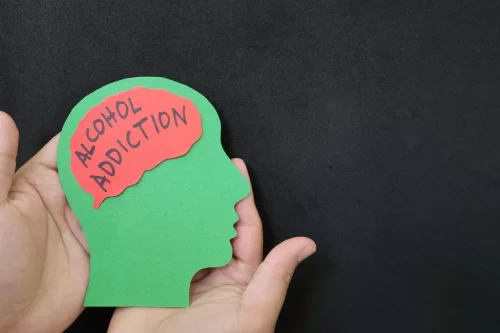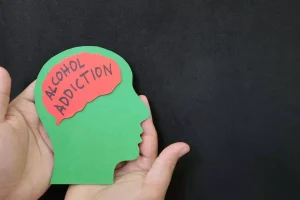
And plenty of people who had been “social drinkers” began drinking more alcohol to cope. In fact, a report led by Harvard researchers affiliated with Massachusetts General Hospital found that excessive drinking in the U.S. increased by 21 percent during the COVID-19 pandemic. Regularly drinking a lot of alcohol can cause or worsen symptoms of depression. Self-medicating by drinking more alcohol to try and numb or mask depression can also make your symptoms worse. However, drinking alcohol to improve your mood can still put you at risk for developing AUD. Over time, you may build up more tolerance to alcohol and need increasing amounts to feel relief from depression.

A 19-Year-Old Died After Taking ‘Gas Station Heroin’. His Mom Wonders Why It’s Still Being Sold Legally.
Lastly, there may be biases in self-reported alcohol consumption status, and the actual does drinking make your depression worse alcohol consumption pattern may differ from the data entered in the database. Nearly one-third of people with major depression (or major depressive disorder) also have alcohol use disorder. Research shows that depressed children are more likely to have problems with alcohol a few years down the road. Also, teens who’ve had a bout of major depression are twice as likely to start drinking as those who haven’t. And if you start drinking at an early age, your risk of alcohol use disorder is higher. Evidence suggests that drinking alcohol can increase your risk of depression — but depression may also lead to increased alcohol use.
- Long-term alcohol use can change your brain’s wiring in much more significant ways.
- Noticing these moments can help you make a plan for different ways to cope.
- It also lowers inhibitions, so if you’ve been trying to keep some difficult emotions, like sadness or anger, under wraps, they may come flooding in when you drink.
- According to Kennedy, for those taking antidepressants, combining them with alcohol can reduce their efficacy.
- Previous trauma is also a risk factor for alcohol misuse and depression.
- Almost 30 percent of Americans will experience alcohol use disorder at some point in their lifetimes.
A higher risk of having a dangerous reaction if you take a monoamine oxidase inhibitor (MAOI).
- Unfortunately, many addiction treatment facilities lack mental health professionals who can assess patients for mental illness.
- These clinics can help someone go through the withdrawal process with medical supervision.
- That’s why your doctor or psychologist will work with you to create a treatment approach that addresses both issues.
- But regularly drinking more alcohol than these guidelines recommend can pose a number of health risks, including depression.
It is important to note that medications for alcohol use disorder are a first-line treatment. They can be helpful for many, so talk to your doctor about this option. Major depressive disorder involves persistent and prolonged symptoms, but depression, in general, takes on many different forms. Depressive symptoms can result from life stressors, mental health conditions, medical conditions, and other factors.
people share how alcohol worsened their depression — and how sobriety helped improve their mental health
Tietz knows thoughts and feelings of low self-worth are her main trigger to drink, so she’s learned to cope by calling a friend, taking a walk and listening to music, or lifting weights at the gym. Even drinking a little too much (binge drinking) on occasion can set off a chain reaction that affects your well-being. Lowered inhibitions can lead to poor choices with lasting repercussions — like the end of a relationship, an accident or legal woes. Each of those consequences can cause turmoil that can negatively affect your long-term emotional health. A good way of keeping track of how much you’re drinking – to help spot patterns, avoid your triggers and stay within the low risk drinking guidelines – is with the MyDrinkaware app. Yet—as life and pop culture so frequently show us—many people trying to cope with the pain, numbness, anxiety, or other symptoms of depression all too often turn to booze.
The good news is that treating both alcohol misuse and depression can make both conditions better. Alcohol use can cause or worsen symptoms of mood disorders. Depression may even cause people to begin consuming large amounts of alcohol. They can cause weird heart rhythms, anxiety, and sleep issues.

Alcohol use issues can cause or worsen symptoms of depression. At the same time, people with depression may attempt to self-medicate with alcohol. If you’ve lost control over your drinking or you misuse drugs, get help before your problems get worse and are harder to treat.

If you feel you’re drinking more than you’d like or your alcohol use is making your depression symptoms worse, there are some things you can do. Long-term heavy drinking can also cause permanent changes to the brain, such as problems with understanding, remembering, and thinking logically. If you keep drinking a lot of alcohol, it can cause more problems and make your depression and anxiety worse over time. However, the flip side is that people who frequently use alcohol are more likely to also be depressed. Drinking a lot may worsen these feelings, which may actually drive further drinking. If you’re not used to it, the caffeine in it can make you jittery and nervous.
